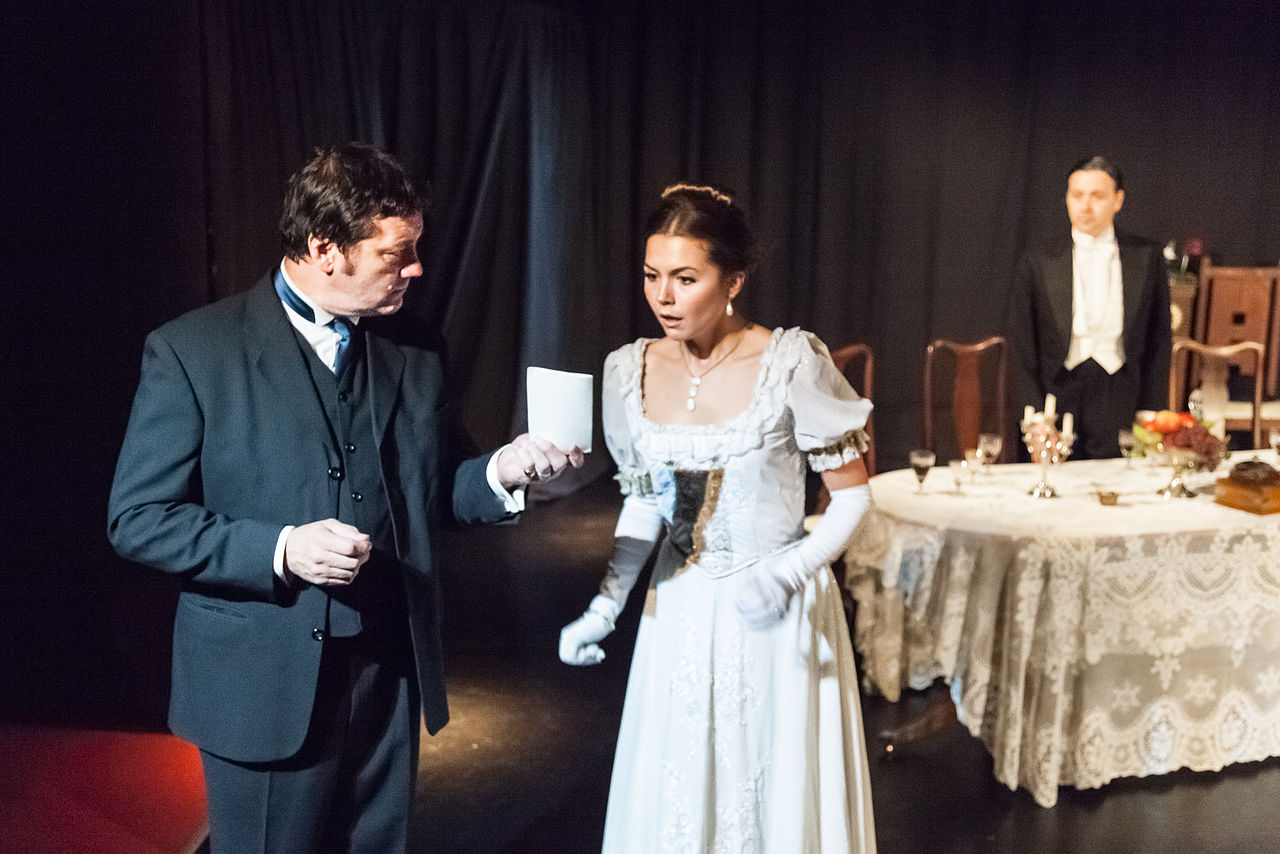An Inspector Calls – Act 2 Activities and Lesson Ideas for KS3/4 English

A five-part lesson plan to help your students get to the bottom of this famous text
- by Nic Worgan

This lesson focuses on revision of Act 2 of An Inspector Calls. It includes plenty of scope for creativity and encourages differentiation and the development of questioning.
Lesson objective:
Revision of characters, relationships and situations in Act 2 of An Inspector Calls.
1. Starter – What’s the question? Act 1 recap
Time:
10 mins
Teaching methods:
Q&A
Learner activity:
Learners work in pairs. Each pair is given a set of five “answers” from Act 1 for which they must make up the question. Swap with a partner to see if they can get the correct answer.
Answers are:
- Milward’s
- Disinfectant
- Goole
- Photograph
- World War 2
and
- Responsibility
- A strike
- A dress
- Daisy Renton
- The Titanic
Learner outcomes:
Learners are required to recall information from Act 1 as a basis for the rest of the lesson.
Having the answers, rather than being given questions, encourages a more-challenging perspective.
How is it assessed:
Peer assessment with the given answers.
Possible discussion of choices.
Resources:
Set of answers for each pair (see above, or download printable worksheets to use at the end of this lesson plan).
Activity 2 – Reading
Time:
10 mins
Teaching methods:
Class reading
Learner activity:
Learners read the beginning of Act 2 (straight through, so as to get a sense of the action). Up to “still a magistrate?”.
Learner outcomes:
Reading of the section of the plan on which the lesson will focus
How is it assessed:
N/A
Resources:
Copies of the text
Activity 3 – Questioning
Time:
25 mins
Teaching methods:
Question writing (based on Bloom’s levels)
Learner activity:
In groups of 4, learners devise six questions based on a given area. They must use the Bloom’s question stems and have at least one question in each level.
Topics to cover:
- Sheila
- Character reactions to the Inspector
- Gerald
- Stage directions
- The relationship between Sheila and Gerald
- Mrs Birling
- The Inspector
Learners then swap their questions with another group who must answer them.
Learner outcomes:
Learners develop their knowledge by creating their own questions then answering them on a different topic.
The question stems aid different levels of questioning without hindering creativity.
How is it assessed:
Monitoring and feedback
Resources:
Bloom’s question stems
Activity 4 – Jigsaw activity / Knowledge collection
Time:
10 mins
Teaching methods:
Group work
Learner activity:
2 members of the group must visit other groups to gather information about the other topic areas.
2 remain to explain their topic to the others.
The visitors must feedback to their group
Learner outcomes:
Learners take responsibility for feedback and explanation which serves to consolidate learning
How is it assessed:
Monitoring and feedback
Resources:
N/A
Activity 5 – Plenary ideas
Time:
5 mins
Teaching methods:
Group work
Learner activity:
As a group, learners create a “graffiti” page of everything they have learnt in the session.
Learner outcomes:
Learners collaborate to consolidate learning
How is it assessed:
N/A
Resources:
Materials for the page (Post-it notes, sticky labels, paper etc).
Notes
- Stretch and challenge – Bloom’s question stems aid the learners into creating and responding to higher level questions.
- Differentiation – Starter activity allows learners to differ in the complexity of the question they create.
- Group work basis facilitates and encourages mixed ability discussion and support.
- ICT – Could be used for the plenary (eg Wallwisher) and for question collaboration.
Click here to download this lesson plan and required resources as PDFs.
Nic Worgan has been teaching English for 13 years, in secondary schools and in further education, and has a lot of TEFL experience. Nic has also been a GCSE examiner for many, many years, and blogs at gcse-english.com. You can find her on Twitter at @LitLearn.











